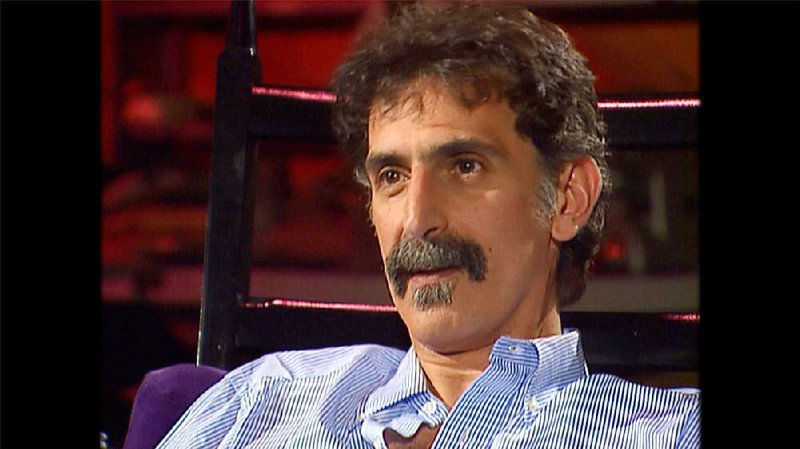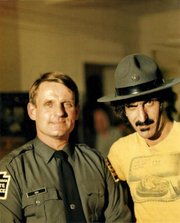Frank Zappa is one of those artists whose persona has always overshadowed his art. Some 23 years after his death from prostate cancer, most people can conjure up a mental image -- the prominent nose and hair, the soul patch, the sneer -- of the iconoclastic musician while a relative few recall the music he made with the Mothers of Invention in the '60s and '70s. Some might recall his greatest hit, the novelty song "Valley Girl," recorded with his daughter Moon Unit improvising lyrics over an atypically "straight" 4/4 time (though it shifts into 7/4 in the outro). While he was alive Zappa often lamented that despite the seriousness of most of his work, he was doomed to be regarded as a novelty artist or, worse, an empty celebrity icon.
That's too bad, for while Zappa's avant-garde experimental pop was a bit chillier than his friend and fellow traveler Captain Beefheart's similar but bluesier brand, it's not entirely inaccessible. Zappa was funny with his put-downs, and his best work -- like the guitar-driven "Black Napkins" or the instrumental jazz fusion piece "Peaches En Regalia" from his remarkable 1969 album Hot Rats -- hold up well.
Eat That Question: Frank Zappa in His Own Words
87 Cast: Documentary, with archival footage of Frank Zappa
Director: Thorsten Schutte
Rating: R, for language, some sexual references and brief nudity
Running time: 93 minutes
Still, he is better known as a culture hero. There is a subspecies of American geeks that model themselves on Zappa's brand of cool, particularly his disdainfulness for all convention. Zappa wielded his considerable intelligence as a weapon, a well-balanced rapier that cut so quick and deep that his targets didn't feel the sting until later.
Eat That Question: Frank Zappa in His Own Words is German documentarian Thorsten Schutte's attempt to present Zappa to neophytes as well as old fans of complicated music. And he does this in probably the only way Zappa himself would approve, by getting out of the way and letting the Mother speak for himself.
The film consists entirely of excerpts from Zappa's (surprisingly many, given his observation, captured in the film, that an interview "is one of the most abnormal things you can do to somebody") television interviews, interspersed with archival concert footage.
Zappa first appears as a clean-cut, rather serious young man bowing and drumming on a bicycle on The Steve Allen Show in 1963; then he shows up as a mystery guest on What's My Line. But most of the material presents him in his iconic form, a highly verbal, insistently mocking figure who somehow simultaneously conjures up Rasputin and Spike Jones. He's entertaining as he comments profanely on the absurdity of show business, mesmerizing as he appears before a congressional committee considering Tipper Gore's Parents Music Resource Center's proposal to put warning labels on records. Zappa calls the PMRC proposal an "ill-conceived piece of nonsense, which fails to deliver any real benefits to children, infringes the civil liberties of people who are not children, and promises to keep the courts busy for years dealing with the interpretational and enforcemental problems inherent in the proposal's design."
Finally, there's a touching valedictory sit-down with NBC's Jamie Gangel for the Today show.
Schutte's collage is well stitched together, giving us the flavor of Zappa's times as well as his life. It's a serviceable introduction to the life and music of a man who, had he been born 30 years later, would have found himself with more targets of opportunity -- and far more ways to get at them.
MovieStyle on 08/12/2016

